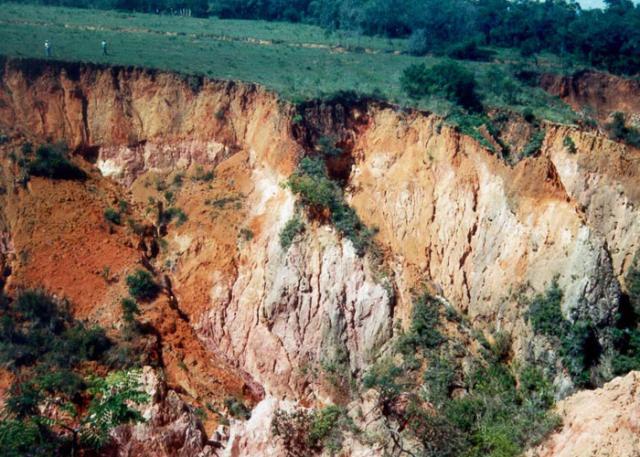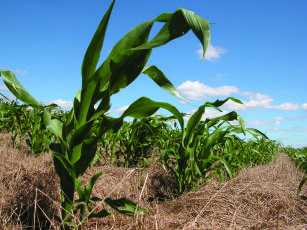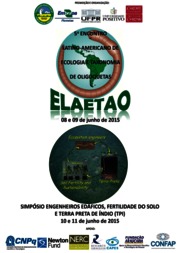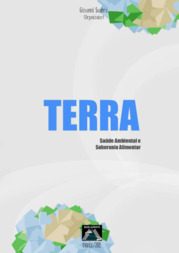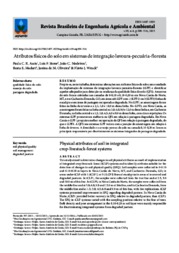Unit
Embrapa Soils
12/07/16
|
Natural resources
Study finds that 30% of world soils are degraded
Threats like compaction, nutrient imbalance and loss of organic matter affect nearly a third of the planet's lands. A comprehensive study involving 600 researchers from 60 countries showed that over 30% of the world's soils are degraded. Coordinated by the Food and Agriculture Organization of the United Nations(FAO), the study results were published in the book Status of the world´s soil resources.
The report brings a global perspective on the current conditions of soil resources and their role in ecosystem services like water production and carbon sequestration, and addresses the threats to the contribution from soils to such services both in terms of public policy and technical recommendations. According to the Embrapa Soils researcher Maria de Lourdes Mendonça Santos Brefin, a member of the publication's editorial board and regional coordinator for Latin America and the Caribbean, the prospect is that the situation will worsen unless concrete actions that involve individuals, private sector, governments, and international organizations are taken. "The book's main conclusion is not good. The world's degradation indicator is high and mainly caused by erosion, compactation, loss of organic matter, and nutrient imbalance", the researcher reveals.
"These four threats have the same origin: the ever increasing human exploration of lands, generally combined with climate change", asserts Miguel Taboada, director of the Soils Department of the Argentinean National Institute of Agricultural Technology (Instituto Nacional de Tecnología Agropecuaria - INTA).
Over 10% in agricultural losses by 2050
Annual crop losses caused by erosion have been estimated at 0.3% of production. If the problem continues to grow at this rate, production may be reduced by over 10% by 2050. Erosion in agricultural soils and intensive pastures varies between a hundred and a thousand times the natural erosion rate, and the annual cost of fertilizers to replace nutrients lost due to erosion reaches US$ 150 billion.
"In the world, compaction has degraded an estimated area of 680,000 km2 of soils, or about 4% of the total land area", says Lourdes, who also comprises the group of 27 experts of the United Nations Intergovernmental Technical Panel on Soils (ITPS). Animal trampling and insufficient land cover of natural vegetation or crops are responsible for the 280,000 km2 of compation in Africa and Asia, an area that is larger than the territory of New Zealand.
The damages caused by soil compaction can be long-term or even permanent. Compaction that happens today can lead to reduced crop productivity for up to 12 years.
However, the biggest obstacle to improving food production and the role of soils in degraded landscapes is the lack of nutrients, especially nitrogen and phosphorus, as well as organic inputs. All of Africa, with the exception of three countries, removes more nutrients from the soil than the amount returned through the use of fertilizers, crop residue, manure, and other organic substances.
In other areas, the excessive supply of nutrients contaminates the soil and water resources, and contributes to greenhouse emissions. In 2010, nitrous oxide emissions from croplands resulting from the addition of synthetic fertilizers were equivalent to 683 million tons of CO2.
"There is evidence that humankind is close to the global limits for total nitrogen fixation and the regional limits for the use of phosphorus", states Maria de Lourdes. "Therefore, we must work towards stabilizing or reducing the use of fertilizer nitrogen and phosphorus, while simultaneously increasing the fertilization in regions with nutrient deficiency". According to the scientist from Embrapa, increasing plants' nitrogen and phosphorus use efficiency is a fundamental requirement to achieve such goal..
International panels
The Intergovernmental Technical Panel on Soils (ITPS) is still not as well-known as the one on climate change (IPCC) or desertification (UNCCD). The scientists in the area intend that the panel on soils has greater interaction with the other ones, in order to more clearly and definitely include soils in discussions on food security, climate change, biodiversity conservation, etc.
There is going to be a workshop between ITPS and IPCC in March 2017 in Rome with the purpose of more directly including land and land indicators in climate change debates, in line with the last UN Climate Change Conference Agreement in Paris, which evidenced the role of agriculture as the next focus of countries' emission reductions.
Action in Brazil
In 2012, Embrapa and the Brazilian Federal Court of Accounts (Tribunal de Contas da União - TCU) gathered Brazilian and world authorities in Brasília for three days of debates on soils. The occasion saw the elaboration of the Letter from Brasília, with recommendations for decision makers on land management and conservation.
Another important strategic action is the implementation of the National Soils Program (Programa Nacional de Solos do Brasil - Pronasolos), whose aim is to create instruments for soil governance in Brazil. The Program is led by Embrapa Soils, a mandate established by a TCU resolution, and involves ten Embrapa research centers, four universities, the Brazilian Institute of Geography and Statistics (Instituto Brasileiro de Geografia e Estatística - IBGE), the Brazilian Mineral Resource Research Corporation (Companhia de Pesquisa de Recursos Minerais - CPRM), and the Ministry of Agriculture, Livestock and Food Supply (Ministério da Agricultura, Pecuária e Abastecimento - Mapa). Pronasolos will also facilitate the elaboration and management of a unified soil database infrastructure; capacity-building and recycling in pedology; strengthening of the institutions concerned, and an efficient technology transfer strategy. Embrapa Soils is looking for private partners to implement the program.
Translation: Mariana de Lima Medeiros
Carlos Dias (MTb 20.395/RJ)
Embrapa Soils
Press inquiries
solos.imprensa@embrapa.br
Phone number: (21) 2179-4578
Further information on the topic
Citizen Attention Service (SAC)
www.embrapa.br/contact-us/sac/

